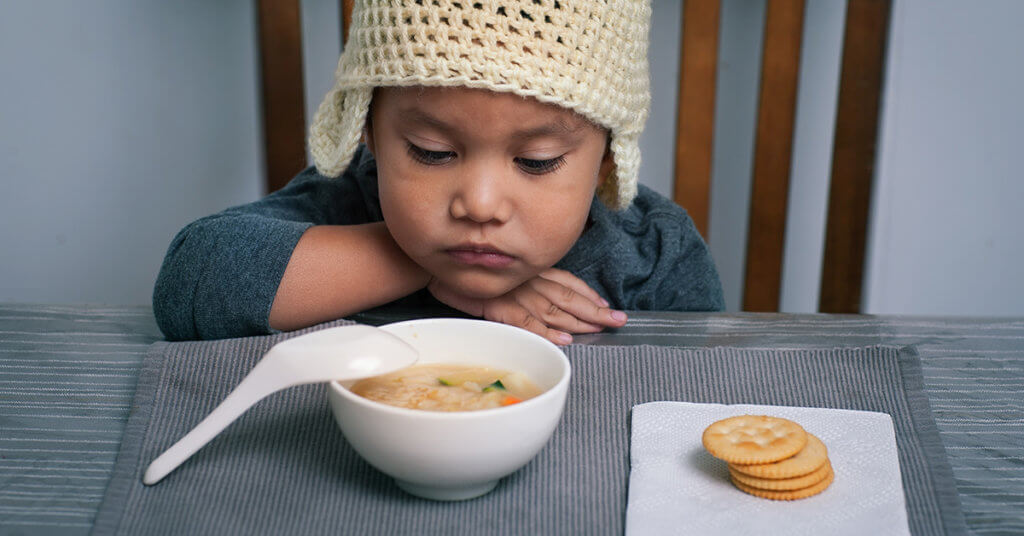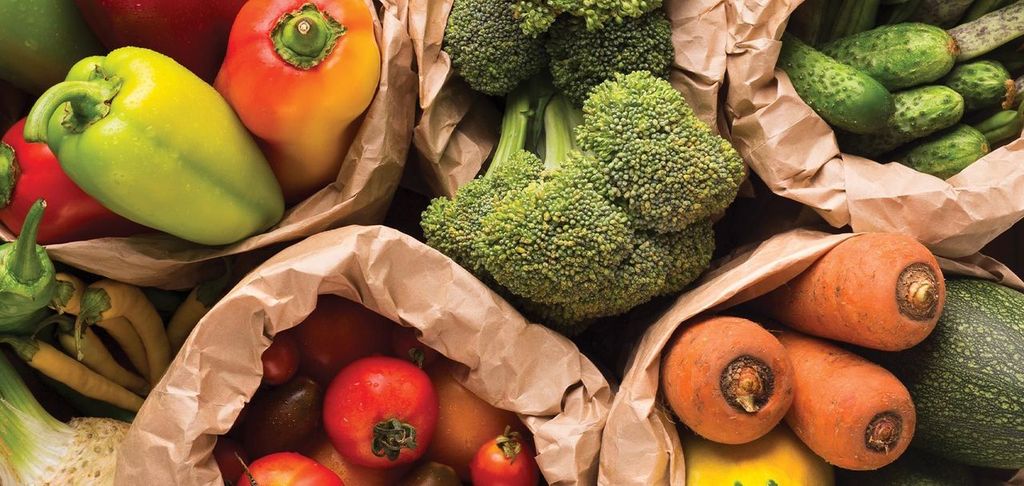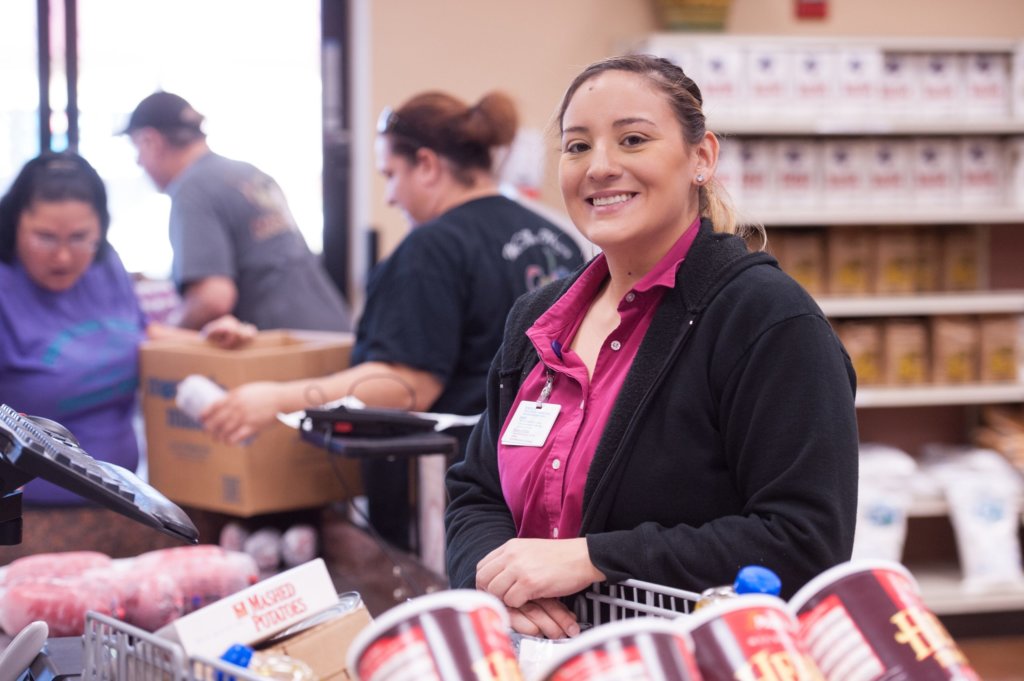UnidosUS Roundtables Explore Ways to Help Fight Food Insecurity During the Pandemic

Latino children were already more likely to live in low-income households and face hunger before the coronavirus reached the United States. The challenge of putting food on the table only got harder as the pandemic hit Hispanic, Black, and other underserved communities the hardest.
UnidosUS recently held two virtual roundtable discussions to discuss policy options for expanding assistance to families in need in Texas and Florida, two states where the impact has been intense.
“Far too many families in Texas were already struggling with food insecurity when the pandemic hit, and its economic fallout has been overwhelming,” said Texas State Representative Lina Ortega (D-El Paso), who participated in the Texas forum with representatives of UnidosUS, the Mexican American Unity Council, and Every Texan. “Many, many more Texas households have found themselves in need of help to feed their children, possibly for the first time in their lives. And it’s leaving many wondering how they’ll ever recover.”
Before the pandemic, 17% of Latino households with children in Texas and Florida reported not having enough food to eat. As of November 2020, that figure had risen to more than 23%, compared to 12.6% of non-Hispanic households in the state. In Florida, nearly 20% of Hispanic households with children reported food insecurity, compared to 11.6% of non-Hispanic White households. Nationwide, as many as 47% of Latino households have reported food insecurity, the highest portion of any racial or ethnic group. In Florida, more than 60% have reported not being able to meet basic expenses due to layoffs or pay cuts during the pandemic. Nearly as many (58%) worry their kids will have trouble accessing free or reduced-price school meals.
One of the most effective ways to get food assistance directly to those who need it, and to alleviate poverty, is the federal Supplemental Nutrition Assistance Program, or SNAP, said Manuel Grajeda, Texas Strategist at UnidosUS. SNAP is the largest federal nutrition program, serving 40 million people; in 2017, it lifted 595,000 Latino children out of poverty. Nationwide, Hispanics make up 21.2% of SNAP households, but in Texas that figure is 48.9%. it’s about one in three in Florida. Along with SNAP, the Pandemic Electronic Benefit Transfer (EBT) program, which helps families whose access to free or reduced-price school meals was affected by campus closures during the pandemic, has been a critical resource. President Biden’s America Rescue Plan calls for extending a 15% SNAP benefit increase from June to September.
But in many areas the need still outstrips the availability of aid, said Crystal Requejo, chief operating officer of programs and development at the Mexican American Unity Council. In the Westside of San Antonio where MAUC is located, the population is 96% minority, and 40% in poverty, compared to the more affluent Northside, where 17% are minorities and 4% live in poverty.
“Communities like ours on the Westside were hit the hardest by COVID-19. Our families worked in hospitality, in the food industry, and that’s where we primarily saw the highest unemployment rates,” she said. “So, they were already living in poverty, and now you’re adding unemployment and it just adds another stressor and another barrier in order for them to access food for their families.”
Local action can help. In Florida, community organizations, schools, churches, and food banks have mobilized like never before to meet unprecedented need. There has been a similar push in Texas. MAUC, for example, worked with partners that included the Food Bank of San Antonio, the Health Collaborative, UnidosUS, and Wells Fargo to get more meals, food boxes, and SNAP assistance to more communities. But there was still “a lot of fear and confusion in our families, especially mixed status families” that often “were still living without SNAP assistance even though they did qualify,” Requejo said.
Fear is a real barrier in Florida, Texas, and other states, said Alberto Gonzalez, a senior strategist for health policy at UnidosUS. Mixed-status families can’t afford to risk being found in violation of the public-charge rule due to the risk an immigrant could be denied a visa. “Between 2015 and 2019, SNAP participation in Texas dropped by 13% due largely to the public-charge rule’s chilling effect,” Gonzalez said. Also, there are restrictions such as a five-year waiting period for many adults who are lawfully present in the country to establish SNAP eligibility in both Texas and Florida.
In Florida, several roundtable participants identified Special Supplemental Nutrition Program for Women, Infants, and Children (WIC) as a potential way to get assistance to families with children that are finding it harder to put food on the table. Otayme “Otto” Valenzuela from Hispanic Unity noted that “there is a huge gap in WIC participation in Florida,” where 400,000 eligible people are not receiving benefits. He suggested that the state could work with community partners to make sure fewer people miss out.
Another way to close the nutrition gap would be to increase the fruit and vegetable benefit in the WIC program, said Cindy Huddleston, policy analyst at Florida Policy Institute. “Right now it provides $9 monthly for children and $11 monthly for women for fruits and vegetables,” she said. “And there’s an ag bill that’s currently pending that would up that benefit up to $35.”
It’s critical to break down structural barriers to accessing the assistance that’s available, said Rachel Cooper, senior policy analyst on the health and wellness team at Every Texan. For example, SNAP requires beneficiaries to work, and in Texas, which lacks extensive public transportation, that usually means you need a car. But Texas SNAP rules count the value of an applicant’s car as an asset, which often disqualifies them.
The Texas roundtable’s participants focused on several proposals that could address these issues in the next session of the Texas legislature. Ortega, working with Cooper from Every Texan, has proposed two state House bills proposing reforms to address the crisis. One, House Bill 1230, seeks to change the way non-liquid assets are calculated to determine eligibility for SNAP assistance, and have Texas join the 38 states that have abolished vehicle limits for SNAP, so Texans aren’t punished for owning vehicles that are crucial in a largely rural state to get to work, school, or a doctor’s office. The other bill, HB 1353, seeks to end the state’s full-family punitive sanction, which prevents everyone in a family from receiving SNAP benefits if the head of the household doesn’t meet the mandatory work requirement, which can happen often in a state where many low-income families depend on unstable jobs with fluctuating hours, and small employers that don’t provide sick leave.
“While we know this crisis is impacting Texas Latinos disproportionately, it’s just not a Latino problem,” Ortega said. “Failing to address the problem of food insecurity in Texas is a threat to the future of our state, and that impacts everyone.”
Despite a crisis that has forced record numbers to seek help at food banks, Cooper expressed optimism. “We’ve never been able to get much traction, especially when it comes to comes to SNAP, because hunger has been kind of hidden in Texas,” she said. But “the pandemic has opened a lot of eyes to the realities of what it means to be poor, and to be living on the edge, and be at the mercy of circumstances.” Now that attention is being focused on the problem, Cooper said, there’s a better chance lawmakers will back the reforms needed to address the underlying causes of hunger.





